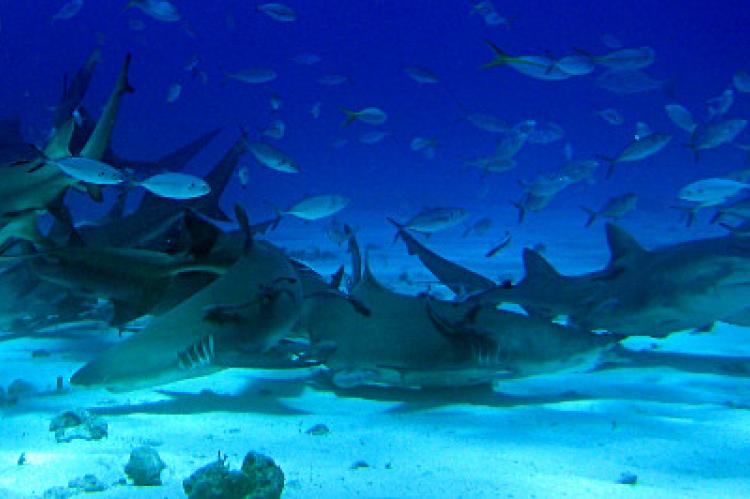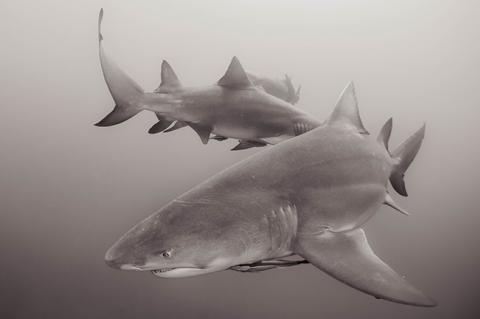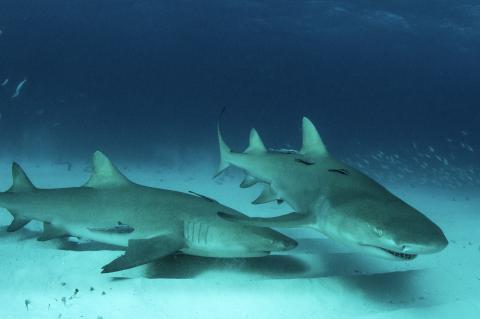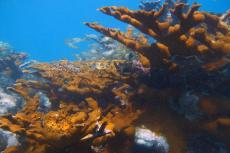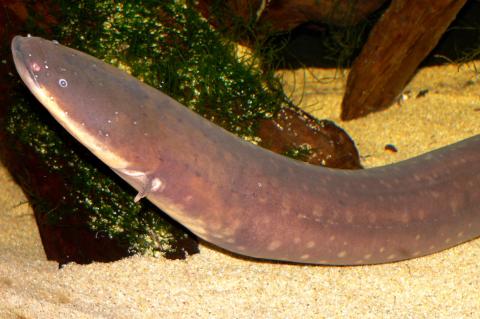New protections won for sharks
The Twelfth Session of the Conference of the Parties to the Convention of the Conservation of Migratory Species of Wild Animals (CMS CoP12) was held in Manila, Philippines, between October 23 and 28. It resulted in added international protection for sharks and rays and several other migratory species, and the decisions were endorsed by the 90 governments attending.
Both whale sharks and angel sharks were added to the Appendix I list. Angel sharks were also added to the Appendix II list as were the dusky shark, blue shark, the common guitarfish, and the white-spotted wedgefish. This means that whale sharks are now protected throughout their ranges, including important nursery area.
Blue sharks are not only the most highly fished of sharks, but are also among the most migratory, so gaining added protection for them was one of the highlights of the conference.
The session also resulted in some important endorsements for other migratory species including all of the proposals on behalf of fish submitted by the governments of Honduras, Israel, Mauritania, Monaco, the Philippines, Samoa, Senegal, Sri Lanka, and Togo.
The next step—fisheries management
While the added protection is welcomed by all those concerned by the plight of sharks, the next step is the necessary follow-up by fisheries management, which must take the actions necessary to protect these beleaguered shark species. Such listings can only be effective when they are enforced, making international cooperation vital. However, a high fraction of shark fisheries are unregulated and most shark catches are unreported and are discarded at sea. Further complicating the problem is the inflated value of shark fins due to the cultural importance of shark fin soup and the consequent involvement of fisheries mafias.
The importance of sharks
Sharks are of incalculable ecological importance throughout the marine ecosystems. Their great diversity is largely due to their survival through the many extinction cycles, which left new niches open. Sharks adapted to fill these niches, an effect called evolutionary radiation. Since the beginning of the Devonian period over 400 million years ago, sharks have been evolving with the changing environment, while other marine animals vanished, so the influence of sharks is now felt throughout the intricate oceanic ecosystems.
For this reason, they are of incalculable ecological importance, whether top or middle predators, and the way they have been targeted by fisheries and virtually eliminated in vast areas is not something that might have happened in a natural setting. Sharks were once common and are now down to less than ten percent of their former numbers—less than one percent in large areas. This unnatural level of depletion suggests that they are no longer fulfilling their former ecological roles, which is a recognized pre-cursor of extinction.



